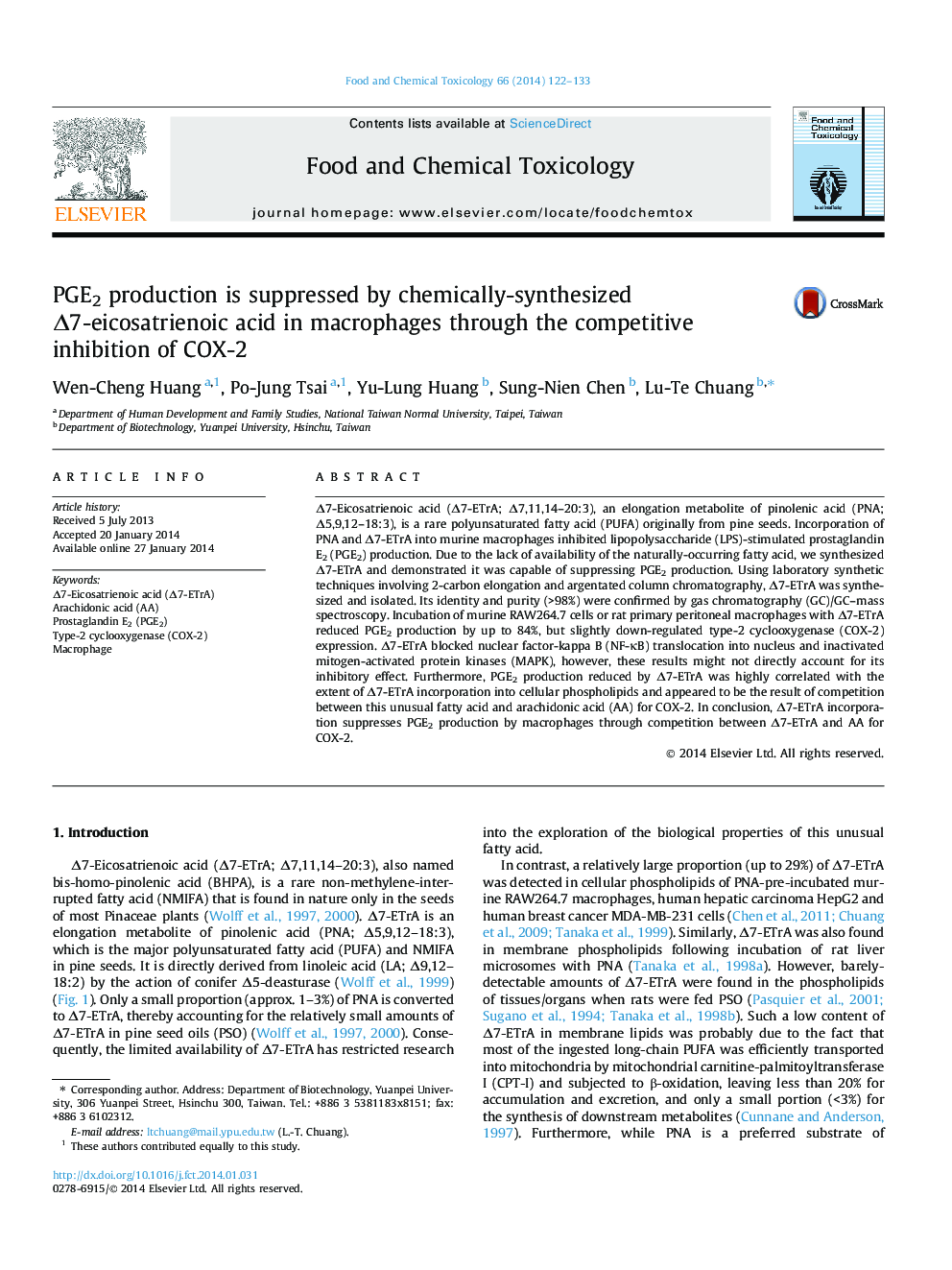| Article ID | Journal | Published Year | Pages | File Type |
|---|---|---|---|---|
| 5850728 | Food and Chemical Toxicology | 2014 | 12 Pages |
Abstract
Î7-Eicosatrienoic acid (Î7-ETrA; Î7,11,14-20:3), an elongation metabolite of pinolenic acid (PNA; Î5,9,12-18:3), is a rare polyunsaturated fatty acid (PUFA) originally from pine seeds. Incorporation of PNA and Î7-ETrA into murine macrophages inhibited lipopolysaccharide (LPS)-stimulated prostaglandin E2 (PGE2) production. Due to the lack of availability of the naturally-occurring fatty acid, we synthesized Î7-ETrA and demonstrated it was capable of suppressing PGE2 production. Using laboratory synthetic techniques involving 2-carbon elongation and argentated column chromatography, Î7-ETrA was synthesized and isolated. Its identity and purity (>98%) were confirmed by gas chromatography (GC)/GC-mass spectroscopy. Incubation of murine RAW264.7 cells or rat primary peritoneal macrophages with Î7-ETrA reduced PGE2 production by up to 84%, but slightly down-regulated type-2 cyclooxygenase (COX-2) expression. Î7-ETrA blocked nuclear factor-kappa B (NF-κB) translocation into nucleus and inactivated mitogen-activated protein kinases (MAPK), however, these results might not directly account for its inhibitory effect. Furthermore, PGE2 production reduced by Î7-ETrA was highly correlated with the extent of Î7-ETrA incorporation into cellular phospholipids and appeared to be the result of competition between this unusual fatty acid and arachidonic acid (AA) for COX-2. In conclusion, Î7-ETrA incorporation suppresses PGE2 production by macrophages through competition between Î7-ETrA and AA for COX-2.
Related Topics
Life Sciences
Agricultural and Biological Sciences
Food Science
Authors
Wen-Cheng Huang, Po-Jung Tsai, Yu-Lung Huang, Sung-Nien Chen, Lu-Te Chuang,
